Colon Hydrotherapy Device Manufacturer
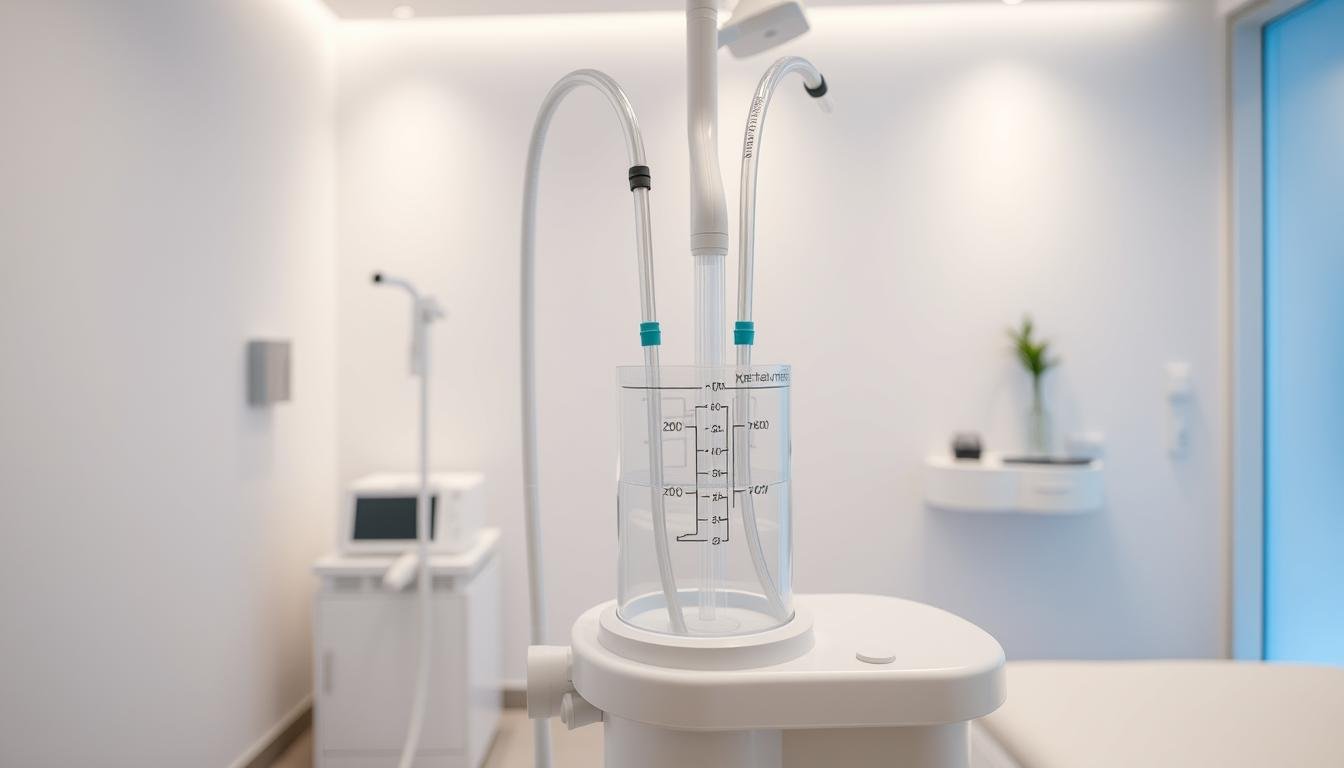
What Is Colonic Irrigation?
Colonic irrigation is a procedure where large amounts of water (sometimes mixed with herbs or other substances) are flushed through the colon via a tube inserted into the rectum. The primary purpose is to remove waste material and toxins from the large intestine.
Unlike an enema, which typically affects only the lower part of the colon, colonic irrigation aims to cleanse the entire large intestine. The procedure is based on the concept of hydrotherapy, where water is used as a therapeutic agent to treat various health conditions.
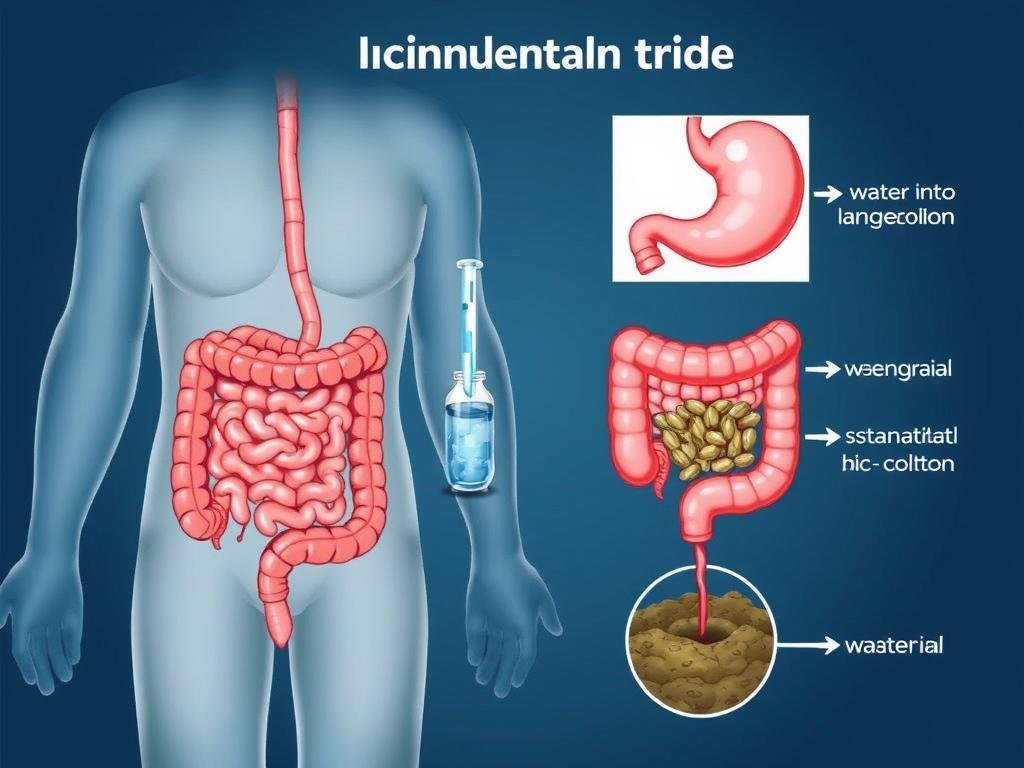
Proponents suggest that colonic irrigation can help with issues like bloating, constipation, and digestive discomfort by removing accumulated waste. However, it’s important to note that medical organizations like the Cleveland Clinic and MD Anderson do not recommend colonic irrigation as a regular health practice.
The Colonic Irrigation Procedure: Step by Step
Before the Procedure

- Initial consultation to discuss medical history and contraindications
- Dietary recommendations (typically light meals 24 hours before)
- Hydration guidance (drinking plenty of water)
- Completion of consent forms acknowledging risks
Important Health Notice
Before considering colonic irrigation, consult with a qualified healthcare provider to determine if this procedure is appropriate for your specific health situation.
During the Procedure
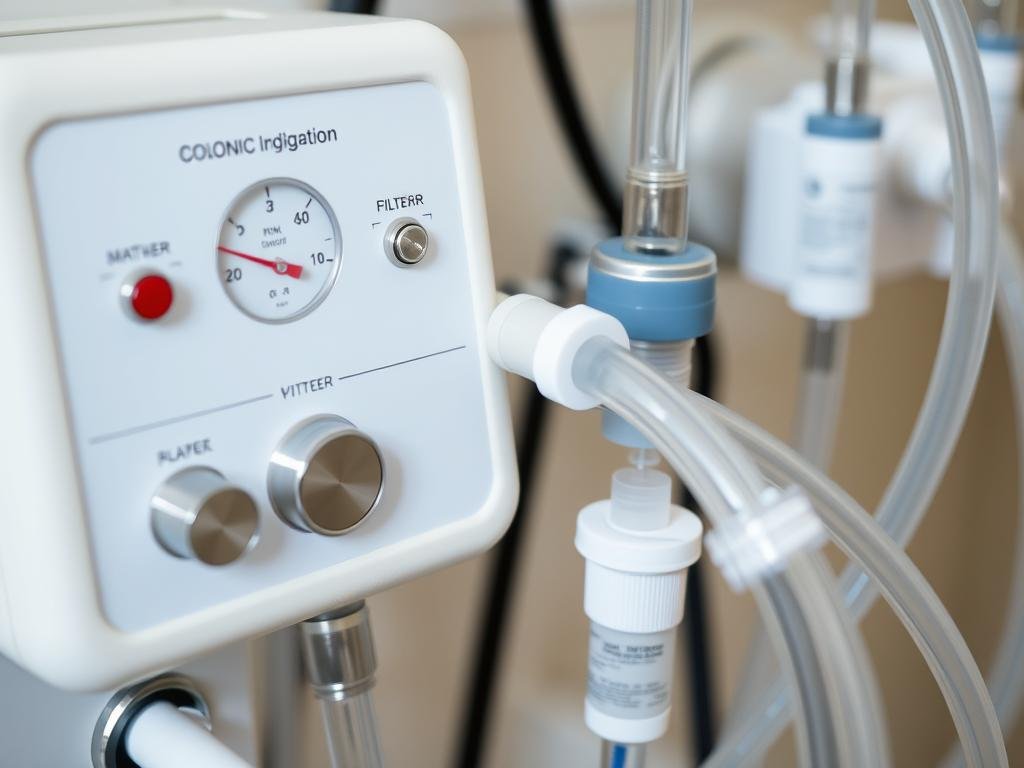
- You’ll change into a gown and lie on a treatment table
- A practitioner inserts a disposable speculum with attached tubing into the rectum
- Warm, filtered water flows into the colon through one tube
- Waste material and water exit through another tube into a closed disposal system
- The practitioner may apply light abdominal massage to help release waste
- The process of filling and emptying is repeated several times
A typical session lasts 30-60 minutes. The temperature and pressure of the water are carefully controlled for comfort and safety. Modern systems use disposable equipment to maintain hygiene standards.
After the Procedure

- Rest period immediately following the procedure
- Hydration with water or electrolyte drinks
- Possible recommendation of probiotics to restore gut flora
- Dietary guidance (typically light, easily digestible foods)
- Monitoring for any adverse reactions
Potential Benefits vs. Risks of Colonic Irrigation
Claimed Benefits
- Removal of accumulated waste from the colon
- Potential relief from bloating and digestive discomfort
- Possible improvement in constipation symptoms
- Reported increased energy and mental clarity
- Supporters claim improved digestive function
Medical Risks
- Disruption of normal bowel function
- Potential electrolyte imbalance
- Risk of bowel perforation
- Possible infection from improperly sterilized equipment
- Disruption of beneficial gut bacteria
- Dehydration
Medical Warning: According to the Cleveland Clinic and other medical institutions, colonic irrigation is not recommended as a regular health practice and may be harmful, especially for people with certain medical conditions.
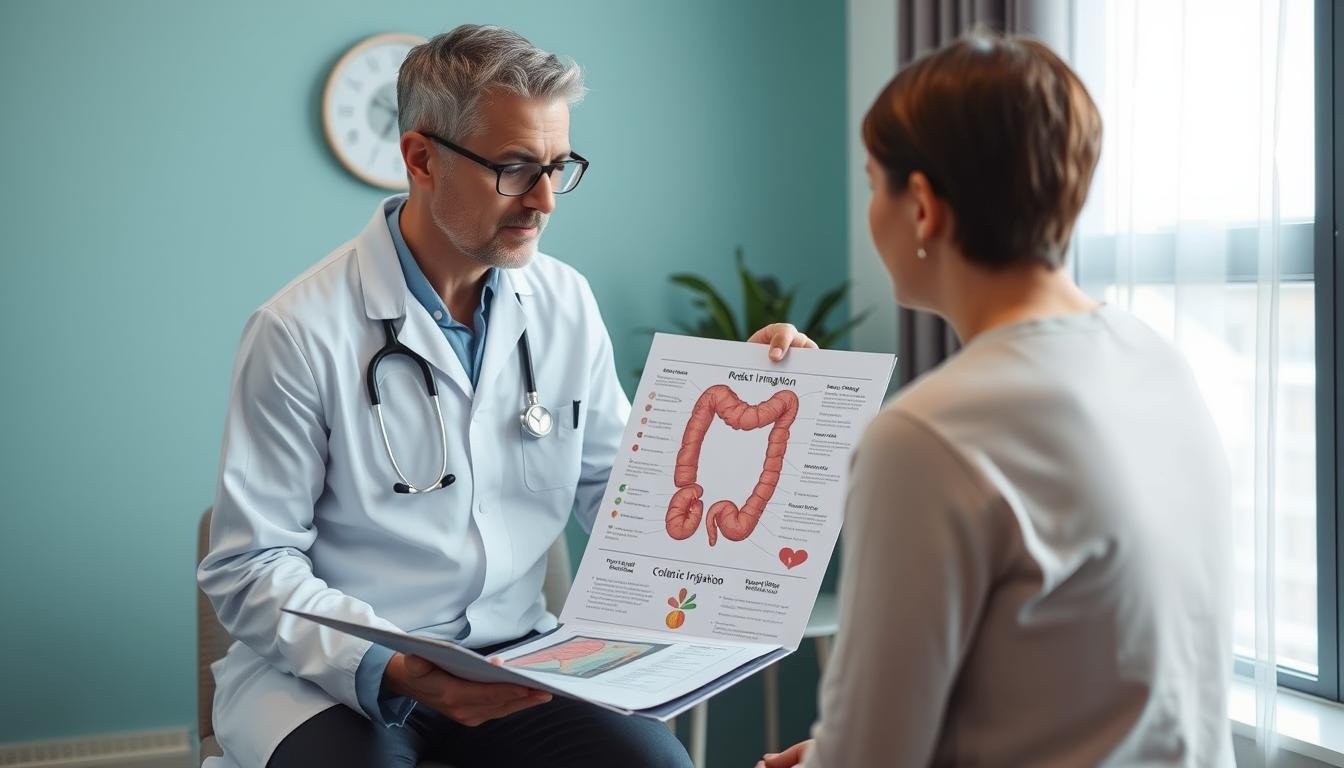
Medical Consultation Recommended
The risks of colonic irrigation can be serious. Before considering this procedure, discuss with a gastroenterologist who can provide personalized medical advice.
Who Should Avoid Colonic Irrigation
Medical experts advise that colonic irrigation is contraindicated for people with:
- Recent colon surgery
- Hemorrhoids or rectal tears
- Diverticulitis
- Inflammatory bowel diseases (Crohn’s, ulcerative colitis)
- Heart or kidney disease
- Severe hemorrhoids
- Intestinal tumors
- Pregnancy
- Severe anemia
- Abdominal hernia
Medical Perspectives on Colonic Irrigation

“It’s not something that you need to do to maintain the health of your colon. For some people, colonic hydrotherapy can actually be dangerous.”
Most major medical institutions, including the American College of Gastroenterology, do not support colonic irrigation as a necessary or beneficial health practice. They point out that the human body, particularly the colon, liver, and kidneys, is designed to remove waste and toxins effectively without additional intervention.
“The colon is quite remarkable because it can care for itself and keep you healthy.”
Medical research has not found substantial evidence supporting the health claims made about colonic irrigation. Instead, studies have documented cases of harm resulting from the procedure, including electrolyte imbalances, infections, and bowel perforations.
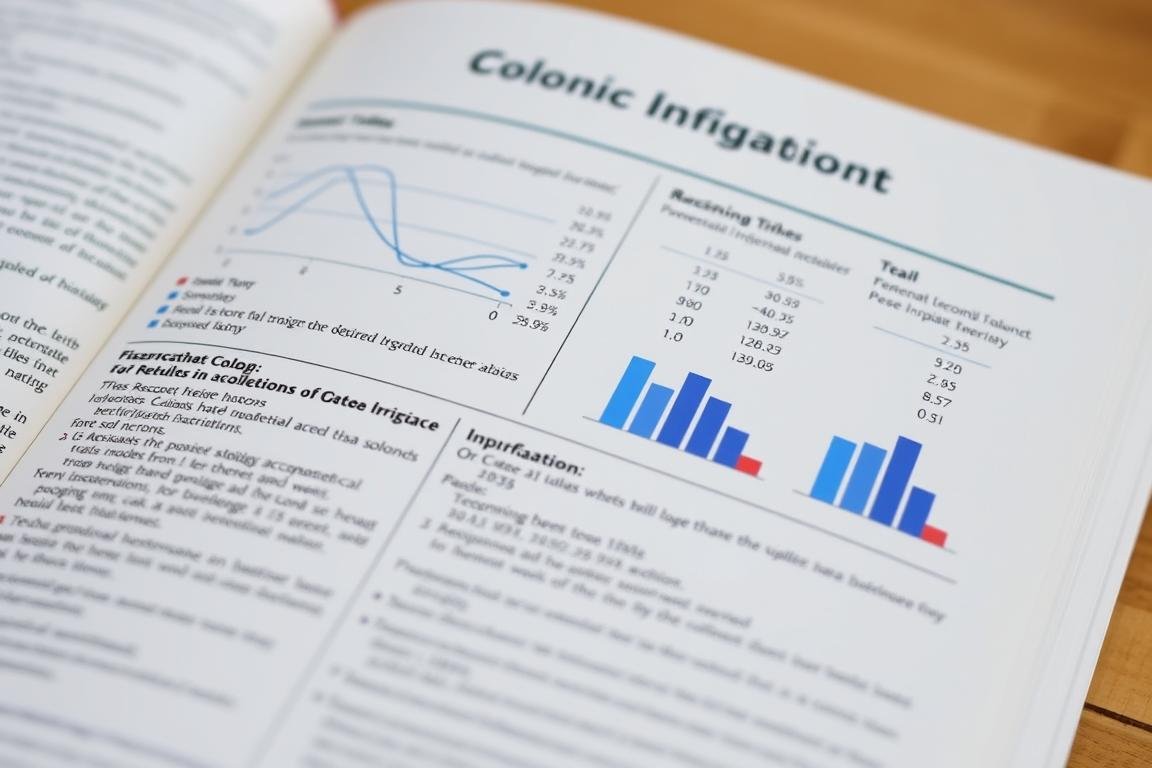
Healthcare providers generally recommend addressing digestive concerns through proven methods such as increasing fiber intake, staying hydrated, exercising regularly, and consulting with a gastroenterologist for persistent issues.
Frequently Asked Questions About Colonic Irrigation
Is colonic irrigation painful?
Most people report minimal discomfort during colonic irrigation. You might experience a feeling of fullness, mild cramping, or pressure as water enters the colon. A properly trained practitioner will adjust water temperature and pressure to minimize discomfort. However, experiences vary based on individual sensitivity and any existing digestive issues.
How often should colonic irrigation be done?
There is no medically established frequency for colonic irrigation. Some practitioners recommend sessions spaced weeks or months apart, while others suggest more frequent treatments initially. However, medical organizations generally do not recommend colonic irrigation as a regular practice due to potential risks and lack of proven benefits.
How is colonic irrigation different from an enema?
Enemas typically involve a small amount of fluid inserted into the rectum to stimulate bowel movement and affect only the lower part of the colon. Colonic irrigation uses more water and aims to cleanse the entire colon. Enemas can be self-administered, while colonic irrigation is performed by a practitioner using specialized equipment.
What qualifications should a colonic irrigation practitioner have?
Look for practitioners certified by recognized organizations such as the International Association for Colon Hydrotherapy (I-ACT) or the National Board for Colon Hydrotherapy (NBCHT). Ideally, the practitioner should have a background in healthcare. Always check credentials, training, and facility hygiene standards before undergoing the procedure.
Will colonic irrigation help with weight loss?
Any weight loss from colonic irrigation is typically temporary and due to water and waste removal, not fat loss. There is no scientific evidence supporting colonic irrigation as an effective weight loss method. For sustainable weight management, medical professionals recommend balanced nutrition and regular physical activity.

Healthier Alternatives for Digestive Health

Instead of colonic irrigation, medical experts recommend these evidence-based approaches to maintain colon health:
Dietary Improvements
- Increase fiber intake (fruits, vegetables, whole grains)
- Stay well-hydrated with water
- Consume probiotic-rich foods
- Limit processed foods and red meat
Lifestyle Changes
- Regular physical activity
- Stress management techniques
- Establish regular bathroom habits
- Adequate sleep
Medical Approaches
- Regular health screenings
- Consult with gastroenterologists for persistent issues
- Evidence-based treatments for specific conditions
- Colonoscopy for preventive screening
Making an Informed Decision About Colonic Irrigation

While this guide has explained how colonic irrigation works, it’s important to approach this procedure with caution. The medical community generally does not support colonic irrigation as a necessary or beneficial health practice due to potential risks and lack of scientific evidence for its claimed benefits.
If you’re experiencing digestive issues like constipation, bloating, or irregular bowel movements, the most medically sound approach is to consult with a healthcare provider who can diagnose the underlying cause and recommend evidence-based treatments.
Remember that your body has natural detoxification systems that work effectively when supported by healthy lifestyle choices. The liver, kidneys, and colon itself are designed to remove waste and toxins without additional intervention.
Consult a Digestive Health Specialist
For persistent digestive concerns, speak with a qualified healthcare provider who can offer personalized, evidence-based recommendations for your specific situation.
